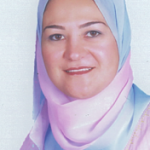Abstract
In this paper, we use the 2006 Egypt Labor Market Panel Survey to gauge and compare the effects of parent-specific characteristics, namely the educational attainment and the contributions made by the mother and the father to marriage costs, on children's welfare, which we measure by the cohort-mean adjusted years of education. The empirical model used for this purpose is a reduced-form regression model inspired by the collective rationality model of household decision. The analysis suggests that mothers' and fathers' characteristics have differential effects on children's education. In particular, the mother's contribution to marriage costs, unlike the father's, positively affects child schooling. The results for parent’s educational attainment are more nuanced. We discuss the policy implications of these findings.
Arabic Abstract:
نستخدم، في هذه الورقة، مسح سوق العمل الذي أجرى في مصر عام 2006 لقياس الآثار المترتبة على السمات النوعية للوالدين وهي بالتحديد ما حققاه من مستويات التعليم وما أسهما به في تكاليف الزواج، وذلك بالنسبة لصالح لأطفال والتي نقيسها بمتوسط عدد السنوات التي تقضيها تلك الفئة في التعليم. والنموذج الخبروي المستخدم لهذا الغرض عبارة عن نموذج تراجعي مختزل مستوحى من نموذج العقلانية الجماعية للقرار المنزلي. ويستشف من هذا التحليل أن سمات الأمهات والآباء لها تأثيرات فارقة على تعليم الأطفال. ولإسهام الأم بصفةٍ خاصةٍ في تكاليف الزواج آثارُ إيجابيةً على التحصيل الدراسي للأطفال، وذلك على خلاف إسهام الأب. ونجد أن النتائج المترتبة على المستوى العلمي للوالدين أشد بروزاً من غيرها وسنناقش ما لهذه الاستنتاجات من تأثيرات على السياسة.

Research Fellows
Rania Roushdy
Associate Professor of Practice, Department of Economics,...



